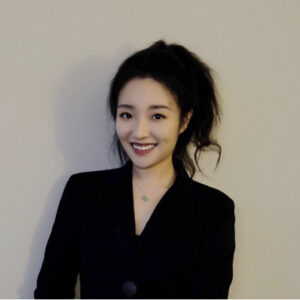Informatics Ph.D. Student Yawen Guo Wins 2nd Place at AMIA Student Paper Competition

Second-year informatics Ph.D. student Yawen Guo won second place in the American Medical Informatics Association 2022 Annual Symposium Student Paper Competition in November. Her paper, titled “Public Opinions toward COVID-19 Vaccine Mandates: A Machine Learning-based Analysis of U.S. Tweets,” studied a large volume of tweets “to examine the beliefs held among Twitter users toward vaccine mandates, as well as the evidence that they used to support their positions.”
“It was absolutely an acknowledgment of my research being well done and the hard work that went into winning it,” says Guo, adding she felt “incredible” upon first hearing the news. “The paper was on my first individual research project since I entered UCI. Not only does it make me feel proud and boost my confidence, but it also helps me figure out what I do well and why, so that I can carry on doing it and use it to shape my research for the better.”
Guo’s paper blends together her two research interests: health informatics and natural language processing. Her past research and internship experiences include developing and refining algorithms that are used in medical research. She adds that one of the main reasons that drew her to UCI was the “strong group of health informatics professionals” such as the Health and Information Lab and its members.
Informatics Professor Kai Zheng, one of the paper’s co-authors and Guo’s advisor, emphasizes that this second-place award is a “remarkable achievement” and that her paper makes a meaningful impact on the health informatics community.
“Empirically, it provides valuable insights into understanding public opinions, rationales for for-positions or against-positions, and potential deficiencies in public health communication related to COVID-19 vaccines and the mandating policies,” says Zheng. “Methodologically, it provides a set of tools for effectively removing noise from the data (there is no shortage of such in social media), producing accurate classification results and using qualitative methods to supplement machine learning-based findings.”
After obtaining her Ph.D., Guo hopes to stay in academia, where she can “harness the power of data science to enhance healthcare and its impact on patients’ lives ultimately.”
“Through my in-depth exploration of algorithm development and systematic deployment, I have attempted to mitigate the misalignment between standard machine learning methods and the complex nature of healthcare services,” says Guo.
— Karen Phan